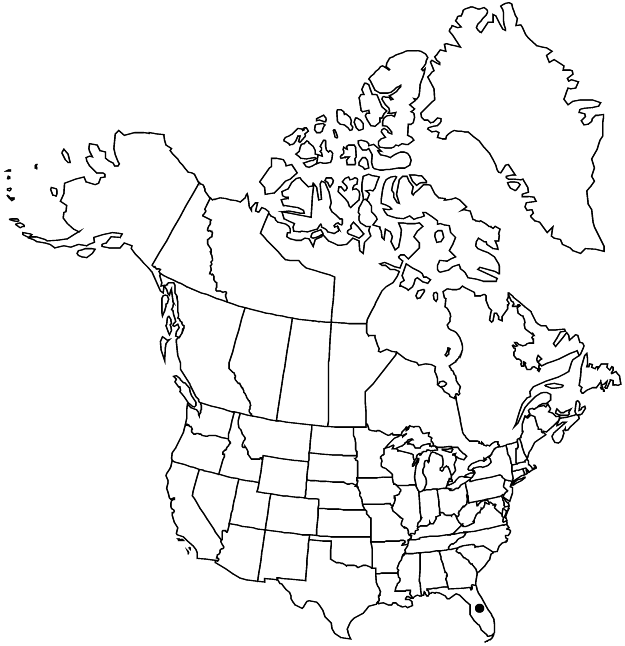Kalanchoë integra
Revis. Gen. Pl. 1: 229. 1891,.
Basionym: Cotyledon integra Medikus Hist. & Commentat. Acad. Elect. Sci. Theod.-Palat. 3: 200, plate 9. 1775
Synonyms: Kalanchoë coccinea Welwitsch ex Oliver
Treatment appears in FNA Volume 8. Treatment on page 157.
Revision as of 22:42, 5 November 2020 by imported>Volume Importer
Plants glabrous or glandular-pubescent distally. Stems 3–20 dm. Leaf blades obovate, 5–20 cm, margins shallowly and irregularly crenate, apex obtuse. Cymes often lax, compound, glandular-pubescent. Pedicels 0.5–2 cm. Flowers fragrant; sepals ascending, triangular-lanceolate, 4–10 mm; corolla yellow or red-orange, flask-shaped (inflated on abaxial side), tube 15–16 mm, lobes spreading, 8–10 mm.
Phenology: Flowering winter.
Habitat: Hummocks, waste places, roadsides
Elevation: 0-50 m
Distribution

Introduced; Fla., South America (Brazil), Asia, Africa.
Discussion
Kalanchoë integra is sometimes included in K. laciniata. In any case it is a difficult complex needing more study.
Selected References
None.
Lower Taxa
None.